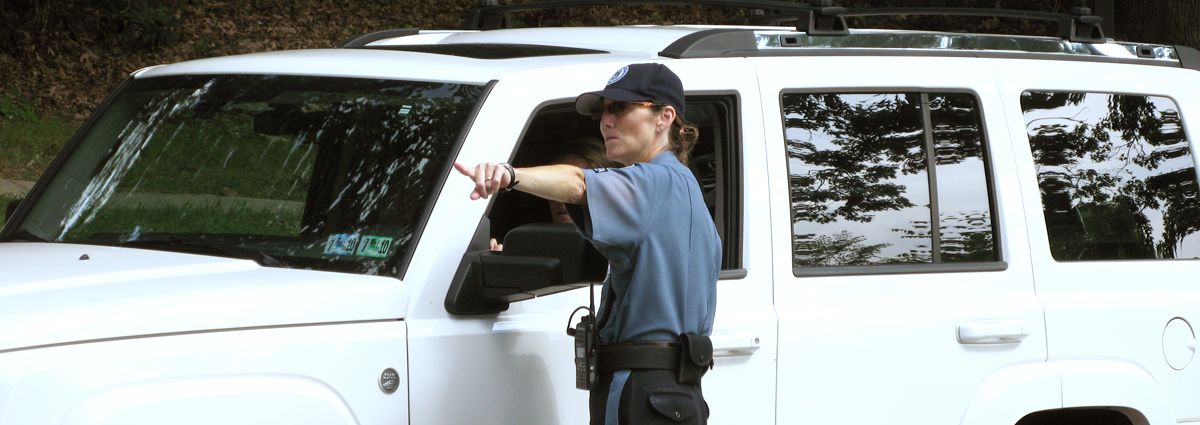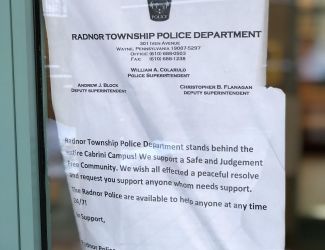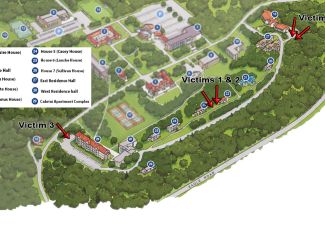What word comes to mind when someone says “crime” and “Cabrini”? This word for Chloe Gruzinski, freshman music industry major, is “Disbelief. It kind of seems impossible here.”
Gruzinski is one of many students who don’t see crime as an issue on campus. The quiet, calm atmosphere while walking on campus seems to defy criminal behaviors. Since Cabrini has not dealt with a serious criminal investigation in recent years, would students be prepared to act appropriately if a crime were to occur?
A new, all-inclusive Cabrini app was recently approved to replace the dated blue light poles and will soon be piloted on campus starting in the spring semester to give students the resources they need.
Always on watch
A hallmark of Cabrini is the people who make up the Public Safety department. They patrol nearly every inch of campus throughout the day and work overnight at the Upper Gulph Road entrance, monitoring visitors. A major part of their job is on-call work and being in the right positions to maintain a safe environment and help students with whatever they need.
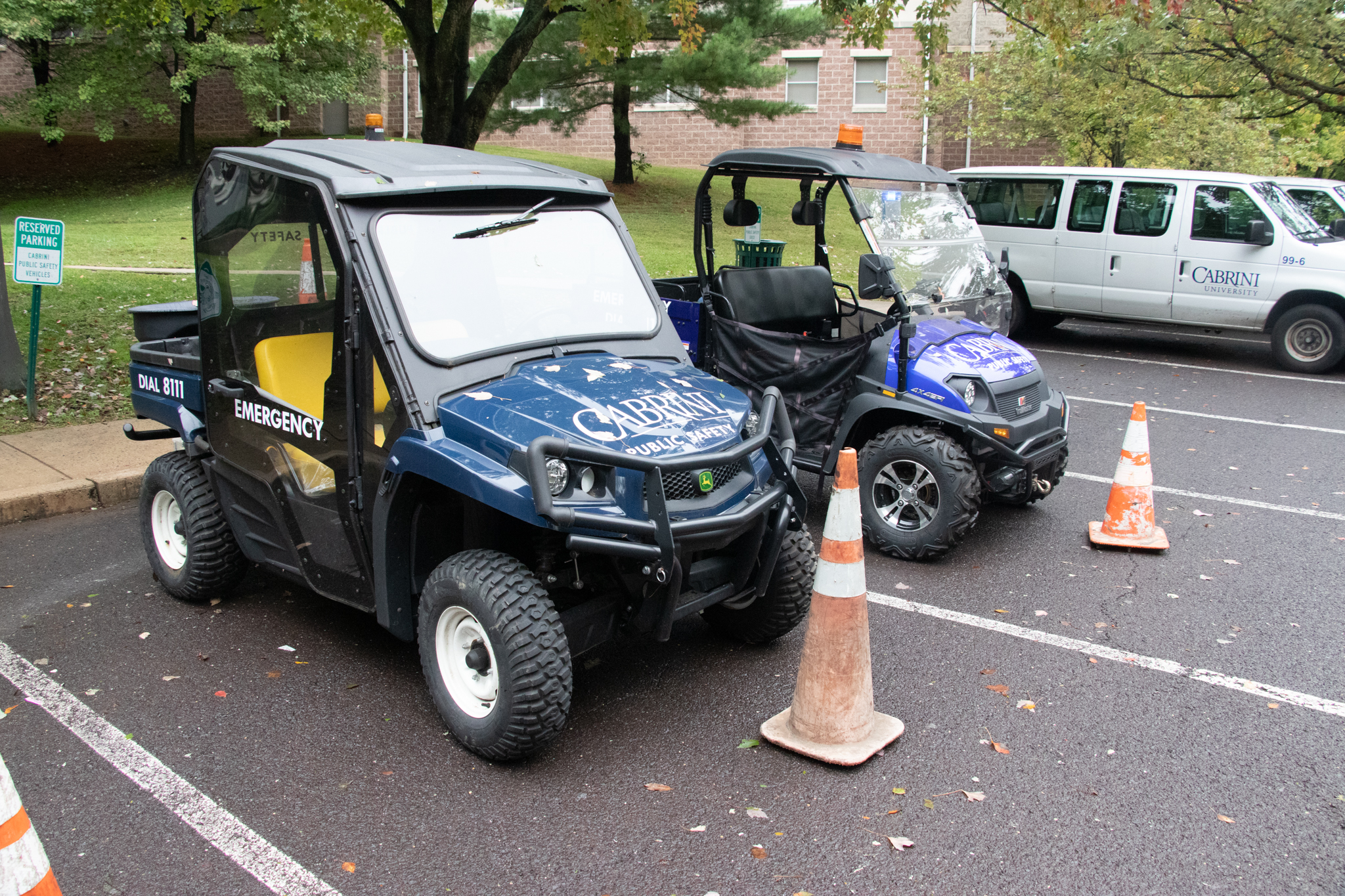
Recently, the Cabrini community received the 2022 annual security and fire safety report. This report is in line with the Clery Act, a federal law requiring colleges and universities to publish an annual report containing the previous three years of crime statistics and security policy statements for the campus.
The purpose of the report is to keep students and community members informed about security and fire safety at Cabrini.
The end of the report features a section on crime statistics, outlining the number of offenses reported to Public Safety in the last three years. A lack of serious offenses reported at Cabrini stands out, which Director of Public Safety Joe Fusco credits with a university-wide effort to protect all aspects of campus.
“We work in partnership with departments like Residence Life where we use desk assistants and employ them to help discourage unwanted visitors,” Fusco said. “We also received a grant from the Pennsylvania Liquor Control Board which allows us to bring in more officers specifically looking for underage drinking crimes. With that extra presence in the halls, that helps to deter these activities.”
Noticing a spike
This partnership with the Pennsylvania Liquor Control Board had a major impact on the number of referrals reported for liquor law violations in on-campus housing. There were 142 liquor violations on campus in 2021, compared to 2019 and 2020 where there were 74 violations across both years.
“The spike and the initiative with the officers are two different things,” Fusco said. “We’ve been running [the partnership] now for the second consecutive year with the Pennsylvania liquor control board. The spike mainly came from students returning after the COVID era where there were a couple of larger gatherings and parties.”
“What ended up happening last year was students coming back, students wanting to socialize, get back to that sense of normal,” Fusco continued. “We all felt disconnected, and so we expected a spike in certain activities. We want the students to socialize, we just want students to socialize carefully and safely.”
Challenging a stigma
For many years, Public Safety has faced a challenge in getting students comfortable reporting suspicious activity or dangerous situations. “Students probably wouldn’t report all crimes. People around this age usually don’t like to involve themselves in that stuff,” Gruzinski said.
Fusco said the reason students are apprehensive about getting involved is because of social stigma. “It’s always been a challenge. Some don’t want to report to Public Safety just because they don’t want to rat out their friends,” Fusco said.
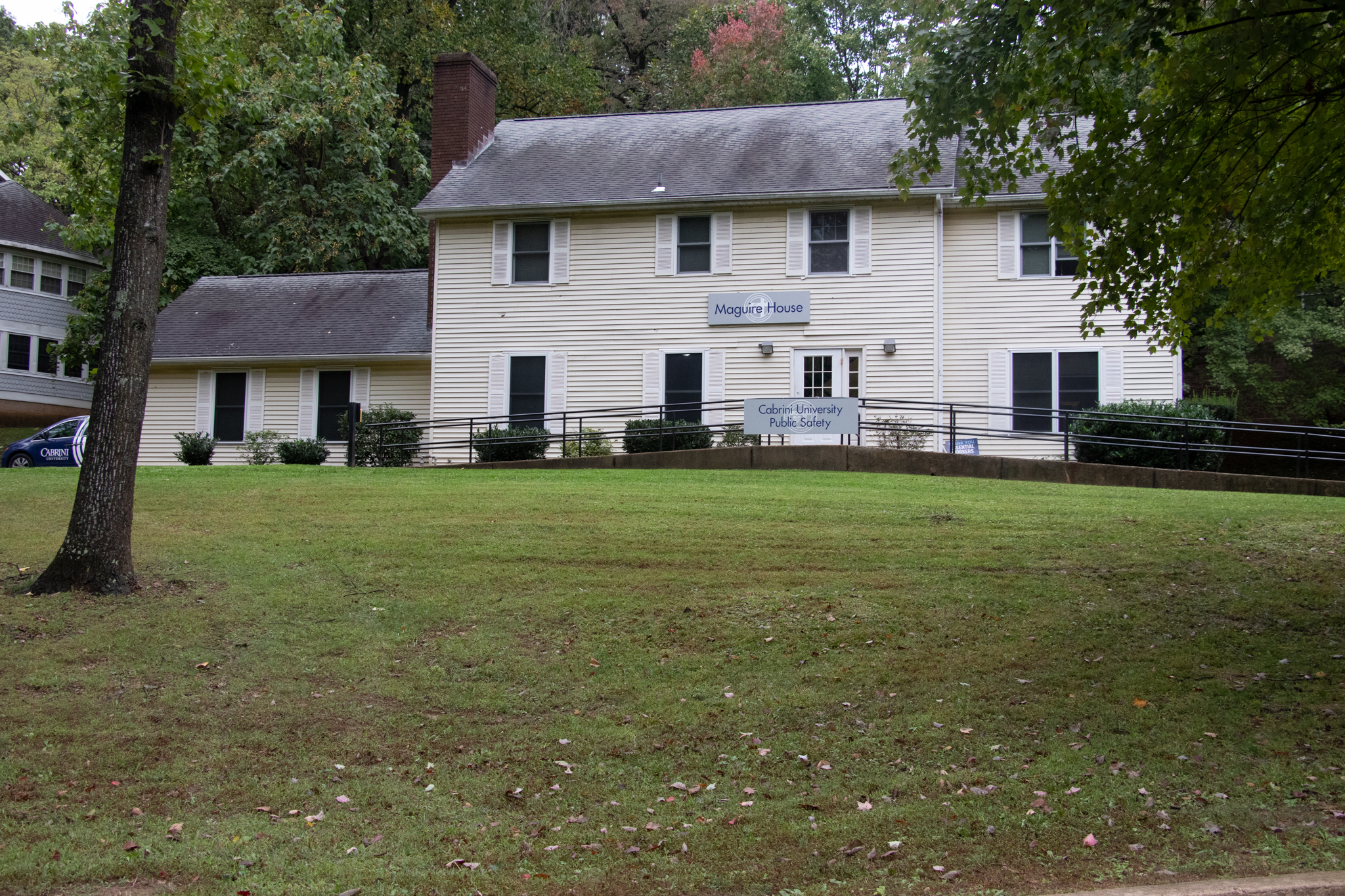
Fusco mentioned ways they continue to work to create an open-door policy with students to break this stigma. They talk to all first-year students during orientation, maintain a presence around campus, and invite the Radnor police department to make appearances on campus so students are more comfortable with local law enforcement.
Fusco also mentioned the amnesty policies to protect students when reporting crimes or dangerous situations. “We understand that some students don’t want to call Public Safety because they’re worried about getting in trouble,” Fusco said. “But if your friend is in need of assistance, we have an amnesty clause for that. Students don’t report because they are always fearful that they can get in more trouble than they are. [We] aren’t worried about your underage drinking issue if you are saving a friend’s life.”
Blue lights dimming?
The blue light boxes, a conversation piece among campus administration, are used to contact Public Safety at any time in an emergency. However, Fusco said it’s a symbol more than a tool promoting safety.
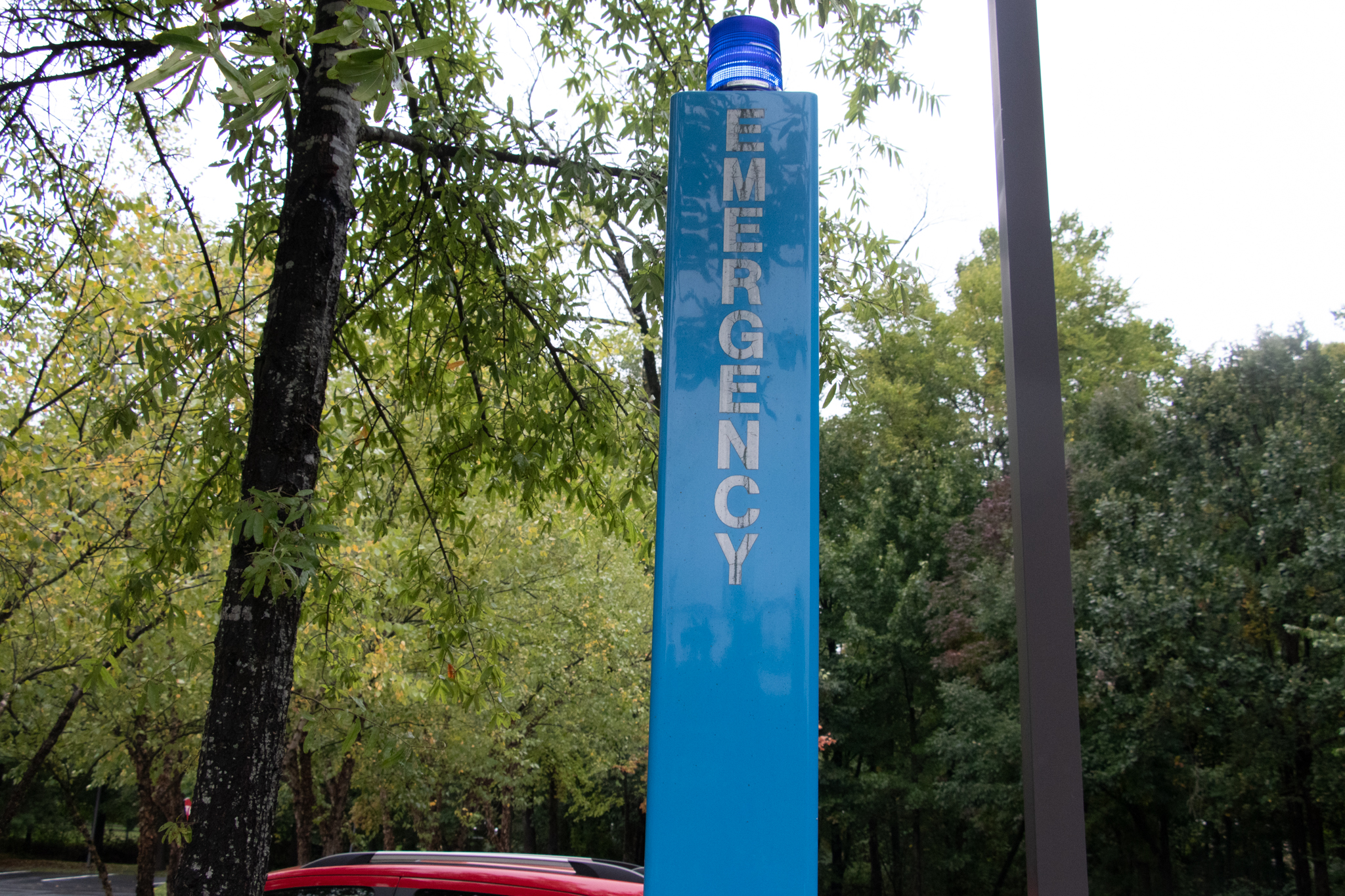
“The blue lights are really not used that often,” Fusco said. “In fact, since I’ve been here, as far as emergency purposes, they haven’t been used. They are used more for students that have locked themselves out and need to gain access to a building.”
Fusco said the university is actively seeking solutions to enhance the blue light system, including this recently approved mobile app that would give students access to all university resources.
The app would offer links to events and activities happening around campus, a shuttle tracker, and a 24/7 Public Safety and Facilities communicator.
“Unfortunately, the blue light system is a little antiquated,” Fusco said. “The app we are rolling out will give students much more ease to reach Public Safety in a format they are already comfortable with. It will be like having a mobile blue light on everyone’s phone.”
The shift to a digital structure will turn the emergency poles around campus into normal light poles.
“Our lack of lighting on campus has been pointed out in our recent security inspections,” Fusco said. “Our goal is to turn some of these blue light poles into lamps that will make campus brighter and feel more safe.”
Fusco said once the app starts rolling out in the spring semester, they will begin adjusting students to the new program. The app is a sign that the university looks to take steps forward from the COVID-19 era and enhance the experience of all Cabrini students.
For now, if you or a classmate needs to contact Public Safety, you can reach them by phone 24 hours a day at (610) 902-8111, or dial “8111.”

